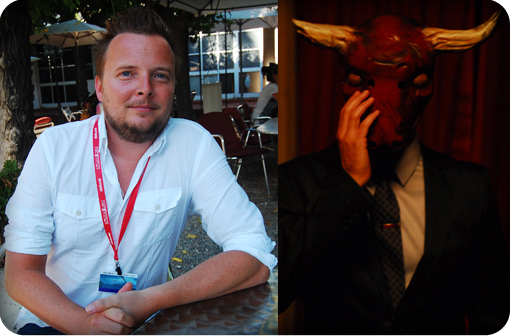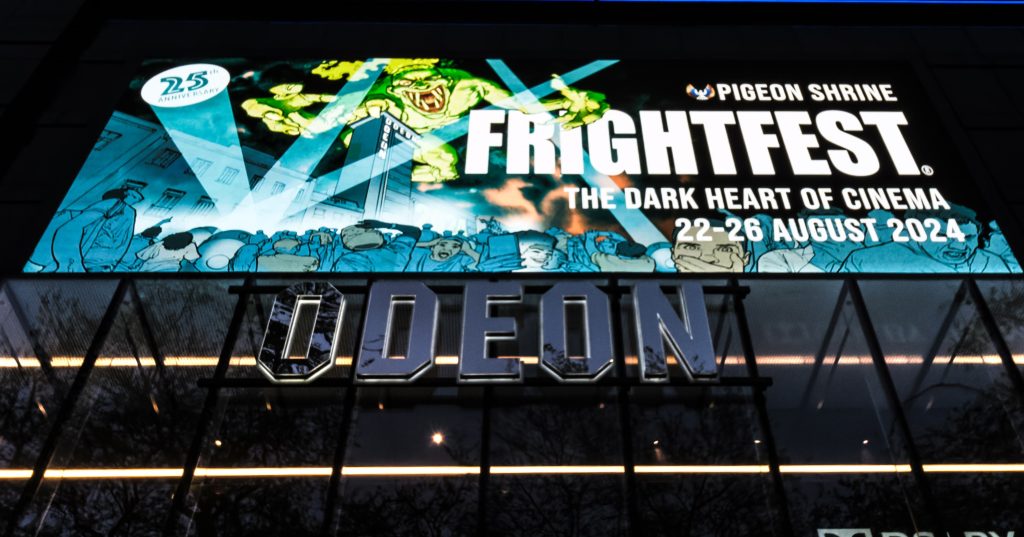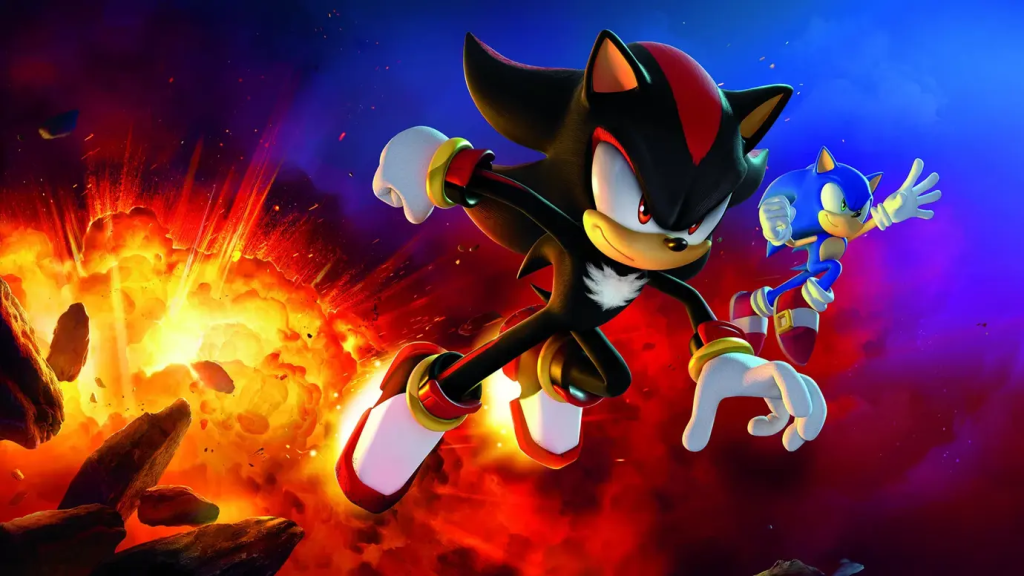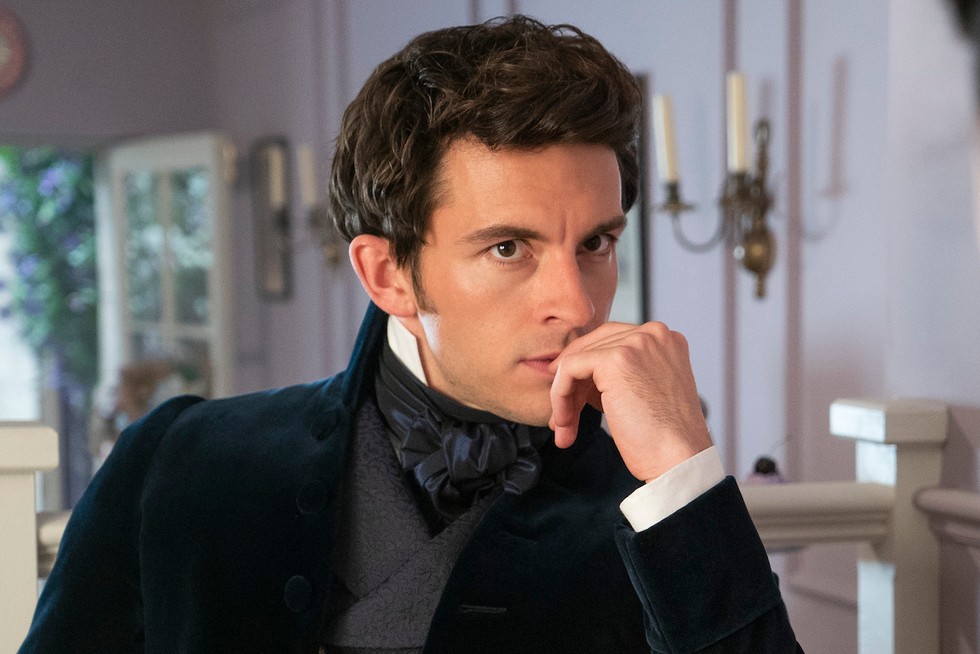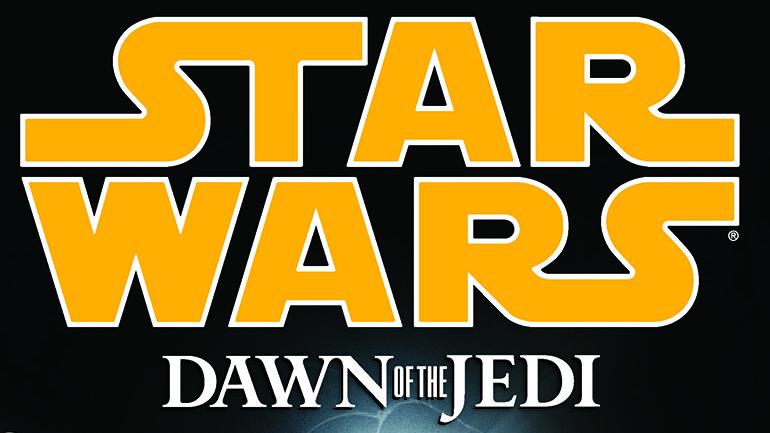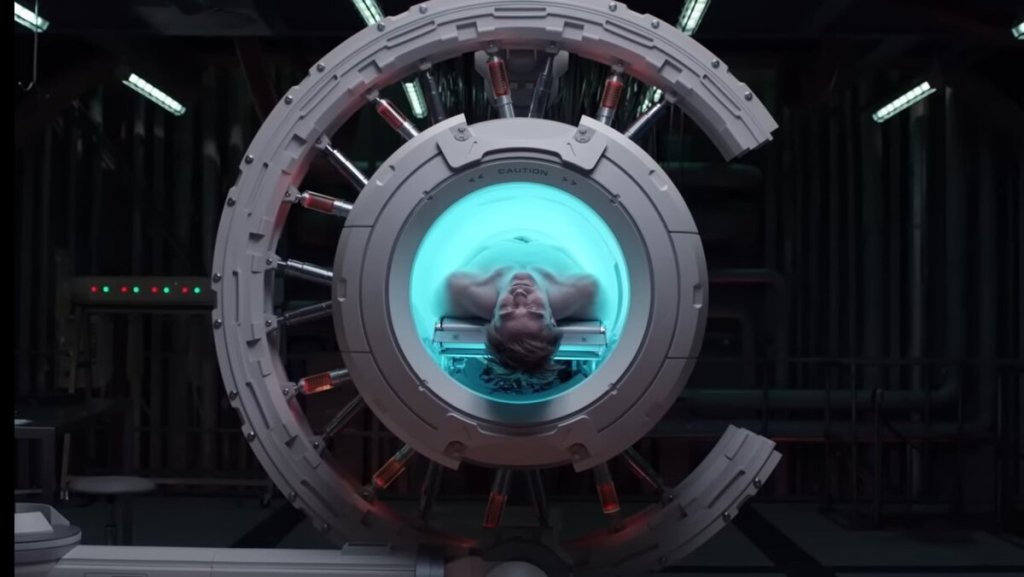
Writer/director Christopher MacBride talks to us about his latest movie, The Conspiracy, out now on DVD/Blu-ray…
Starburst: How influential was the documentary medium in shaping The Conspiracy?
Christopher MacBride: I love the documentary medium, and if I had the talent I would love to make documentary films, but I think it is a very specific type of talent that I don’t necessarily have. My talent lies in fiction storytelling, and at its heart that is what this film is. I looked to many different documentaries as an inspiration for the story, everything Errol Morris had ever done, and the Coles which was a big inspiration.
Essentially I was looking at documentaries as films that presented themselves as truth and hard fact, but the truth of it is that they are actually a human being’s opinion. A specific human being has formed an opinion about a subject, and then made a film that has justified that opinion. That ties directly into the story I wanted to tell, which was the idea of manipulating people’s perceptions, whether through the media, conspiracy theories or a documentary film. So documentaries were a huge inspiration in the making of The Conspiracy, and I think the documentary medium is something very subjective, and I think people often forget that it is based on one human’s point of view.
The Conspiracy played at FrightFest, it must have been a daunting prospect walking into the main screen of the Empire cinema packed full of genre fans to introduce the film and take part in the post question and answer. How do you look back on your FrightFest induction?
I have been excited to show the film at FrightFest because it has such a great reputation internationally. I am actually lucky that I have done quite a few film festivals already with the film, so I have sort of gotten the jitters out in terms of getting up in front of the audience and introducing the film. Even so I think every filmmaker gets a little nervous when they show their film. You are vulnerable when you are showing something that you have worked on for years. You are putting yourself out there, and you are standing in the theatre as they are watching it, and so you can hear people’s sniggers, or you can hear people saying, “Oh this is shit.” So it is definitely a vulnerable thing for any artist to show their work. You are always a bit jittery, but generally the bottom line for me is people seeing your work is a good thing. When I walk into the Leicester Square cinema and there are a thousand people in there about to watch my film, jitters or no jitters that is a great feeling, and when it ends and people applaud and there are endless questions afterwards, that’s great. This thing that was nothing which I invented out of my mind and made into a movie, and is now being shown to a thousand people in London is a fantastic feeling. So yeah, it is a little nerve-wracking, but it’s what I signed up for as a filmmaker.
That’s what’s interesting about art, creating something from nothing and putting it out there for an audience to experience; especially on a format that can be distributed across the world. It’s a great privilege.
I have dreamt of being a filmmaker since I was young. I still sort of pinch myself when I see something I wrote and directed on a movie screen with a full audience, or when I see a journalist has written something about my film. Even if it’s a bad review I’m still, “This is incredible. Someone’s talking about my movie.” It is amazing and I hope I never lose that amazement about it.
We live in a world right now where people are able to express themselves in so many different ways they couldn’t before. You can post a YouTube video of yourself playing with your cat, and there can be a million people that watch it, and suddenly you are YouTube famous. Then there’s all these reality TV shows, all these ways to suddenly become famous or to put yourself out there, in many ways that there never were before. For people who really care about art, and want to be artists, there is still a thrill in being able to become known based on the work that you have done; not based on the fact that you uploaded a funny video or you took a shit on a cat or something. You learned your craft, you hopefully perfected your craft to a degree, and then you are now showing your work to the world. It’s thrilling and as I meet more and more people in the film industry I see how many of them do become sort of jaded about it all, and I just hope that never happens to me. I am amazed that anyone would take the time to actually sit down and watch something that I have made. Even one person doing it is amazing to me let alone a theatre of a thousand people like tonight. It’s incredible.

You’ve spoken about the genesis of the film briefly and your intentions. How did you develop that exploratory thread?
The line between truth and fiction in the film was always a delicate balancing act. I never wanted to insult the audience’s intelligence by trying to convince them that it was real, because I think that smart people are just way too savvy for that. I just wanted to be true to my own personal experience of investigating the world of conspiracy theories. When I looked into conspiracy theories, when I spent months and months exploring that world, I lost track of what was true and what wasn’t. Truth as a concept became a grey area, and as disconcerting as that was, it became the heart of the inspiration for the film, which is how do you assemble your world based on the information that is given to you, and who is controlling that information?
So I was very conscious from the moment I started writing the script that I wanted to blur the line between fact and fiction in what was hopefully a unique way, by telling a fictional story but including as many real life elements as I could. I would include real life conspiracy theory; real-life people who I would interview that were not actors but mixed in with the actors so that you wouldn’t be able to tell what parts were real and what parts weren’t. Even the fictional aspects of the film I made up I would base on very real things, so you’re not sure what is straightforward truth, straightforward fiction, and what is fiction allegorically based on truth. Again I did that not as a gimmick but because that is true to the experience of investigating conspiracy theories. You are completely rudderless in terms of discriminating what is truth and what is a paranoid twisted version of the truth.
So you are attempting to create a dialogue with the films audience, to host a conversation on the film’s line of enquiry?
Yeah, I guess it’s hard to have a dialogue because it’s a one way street, but I definitely don’t want to ever insult an audience’s intelligence. That is important to me and I hate it when a movie does that to me. An example is the ending of The Conspiracy; it is quite a challenging ending in the last five minutes. It is an ending that fools many people and many people misinterpret it. I knew that was a risk going in. I thought to myself, ‘Smart people will get this ending. Smart people will see through what is happening here. Even though nine out of ten people who see the film will not get the ending, it is worth it to me if that one out of ten people gets it.’ So that was something I had to fight for, but I believed in that, and you have to make your art to cater to the highest common denominator, and not the lowest common denominator.
Did your choice of ending meet with any resistance?
The people that finance films are justifiably always worried about the audience, and I have often found that people who are in a position to finance films are very concerned with making sure everyone understands the film. They try and simplify things as much as they can. They are terrified about audiences being confused or losing a part of the story, and sometimes that is a smart thing to do, but I think often they underestimate the audience’s intelligence in terms of being able to follow the thread of a story. I encountered some resistance, but nothing that monumental. I was able to fairly easily convince the powers that be that we should cater to the highest common denominator in our ending, and to their credit they went along with it. We do have quite a challenging ending that most people don’t get, and that’s a credit to the people that financed the film that they went along with it. So kudos to them!
In blurring the line between fact and fiction, you touch upon the conflict that is at the heart of cinema. Everything in film in a sense derives from reality and to quote David Cronenberg, “Everything you do is autobiographical in the sense that it’s filtered through your experiences and sensibilities.”
Yeah, even a blatantly fictional film in some sense you could call it a warped documentary, because it is one human being’s perception of the world represented through stories. So you could absolutely say that. Our film blatantly plays with that idea. Just because you watch something that is a documentary, doesn’t mean you should necessarily trust it. It is still a perception and all film is attuning you to a certain perception. The music you use, the way you edit, the colour correction; everything is designed to make the audience feel specific things whether it is a fictional story or a documentary; whether it is a romantic comedy or it is a two hundred million dollar action film. These are stories that are told to people in dark rooms where they have their rapt attention and they can manipulate their psyche to their will, and so filmmakers in a way are magicians. They can really manipulate an audience’s thoughts for two hours. That’s sort of the philosophical, broad way to look at it. Specifically with our film, we wanted to play with the idea that human beings create their reality based on the information they are given, and whether that information is the news, conspiracy theory web site or documentary film, we are all constantly forming opinions based on other people’s opinions without realising that. I think that is something we should all be a little more vigilant about, of how much of our choices are born of our own free will, and how much of our choices are an illusion, and are actually born of someone else’s will.
Perhaps a fundamental law of our existence is that it is exclusively subjective with objectivity absent.
Our experience as human beings is utterly subjective; we can’t crawl out of our own brains; we can’t crawl out of our own senses. We experience our realities through our eyes, ears, nose, mouth and touch, and there’s no way to escape that. I find that fascinating, and I think film is a great metaphor for that. When you are sitting in the dark staring at this giant screen, with this loud sound, it is arguably the closest you come to experiencing the world through someone else’s subjectivity, and that’s part of the magic of film. It is also part of the danger when it comes to documentary film or the news, when it comes to people realising the power of this medium, and how they can manipulate it in a certain way, and that’s what the film is about.
Of course, in a packed Empire cinema, there would have been a multitude of interpretations, which is the very thing you are talking about.
There is nothing more fascinating than listening to the views of an audience who have just come out of the screening; they are so different from one another sometimes. As a filmmaker you can’t take people’s opinions too seriously, and I don’t mean that in a derogatory way. You want everybody to enjoy your film, but you have to have a healthy understanding that this is an utterly subjective thing. No matter how much people try and reduce things to a Siskel and Ebert style thumbs up and thumbs down, the truth of the matter is that art is one hundred per cent subjective. I can go on the internet if I want to, and I can see one person point to an aspect of the film and talk about why that one aspect is the reason why it is so terrible, and then I can look at another person who points to the exact same aspect and says that’s why the film is brilliant. When you see stuff like that you just realise that you cannot take it too seriously. This is a subjective medium, and everyone’s opinion is subjective. All art has been like that since the beginning. You just have to do the best you can for your film so that it’s something you enjoy, and then don’t take it too seriously.

What distinctions would you draw between the American and UK audience’s response to the film?
I would say generally that just based on film festivals and when I have seen the film screened in movie theatres across the world, I would say North American audiences are a little more vocal, and they sort of verbalise things out loud. They’ll make the screening an experience so to speak. In England and in Europe in general, I found people are much more serious when they watch the film, perhaps because there is more of a reverence for the art of film over here, and so there was a definite higher level of intensity when I saw the film in London tonight. You had a feeling that people were quiet, absolutely glued to the screen and hanging on every moment. Even though certain jokes that maybe in North America people would start laughing and clapping at, they don’t do the same thing in London. You absolutely feel that they are hanging onto every beat of the film, which is a great feeling. Obviously as a filmmaker you feel that film is an important thing, and so you can identify with audiences in London, where you are “Yeah, damned right you should be quiet”, that is exactly what you should be doing.
How would you sell this film to people or persuade people to take the time to discover The Conspiracy?
Well, I would say that there are a lot of things going on in the world, a lot of things that most people don’t know about. The forces that are shaping the direction of our societies, of our planet are not necessarily in the public light. If you go to see The Conspiracy, on one level it is an enjoyable thriller about some people who uncover a hidden truth and get in way over their heads. It can also be a little bit of an eye opener in terms of some of the different forces that are at work in the world, and which are trying to control all of our existences.
You get a combination of entertainment and perhaps a little bit of inspiration about certain aspects of society that perhaps people haven’t heard of before. There are a lot of people that maintain power in the world, but not through being in the spotlight. There are people that maintain power by being in the shadows, and they have a vested interest in staying in the shadows. As much craziness as there may be in the conspiracy theory world, one good thing is that they are trying to shed light on organisations operating in the shadows. If you are at all interested in that type of thing, then this is definitely the movie for you.
Is it a cynical or optimistic take on conspiracy theories and theorists?
I would say that it is neither. The movie doesn’t make fun of conspiracy theorists, but at the same time it doesn’t disagree with them blindly. It presents a pretty even handed view of conspiracy theorists and of the theories that they believe in. I think it just mirrors the experience that I had, which is a naturally sceptical person sucked into the world of conspiracy theory, and what that can do to your psyche. I tried very hard to not be judgemental about the conspiracy theory world or the theories themselves. I really want people to make up their own minds. Again going back to the idea that people assume documentaries or films are the truth, I think that is a mistake, and just because I made a film about conspiracy theories doesn’t make me any kind of an expert on the topic. People should go and see this film but then make up their own minds to what they believe. I was very conscious of that throughout the process of writing the script, and I didn’t want this to be preachy or telling anyone what to think. I just want to expose people hopefully to some new ideas, but I want them to make up their own minds.
The Conspiracy is being described by some as a found footage film, a sub-genre that has become saturated. As a consequence there is a contingent of the audience ready to turn away from any films that fall under the found footage heading. As a filmmaker how conscious of walking this line were you?
The first thing I would say is I don’t see it as found footage; I see it as a faux doc. It is meant to look like a finished documentary that has been cut together, music has been put on it and it is as cinematic as a documentary can be. But it has found footage elements to it. When I started writing the film years ago, the market place was not as saturated as it is today with the sub-genre, so it was definitely somewhat disappointing to me as year after year after year this became a bigger thing. As I have always said, as long as the gimmick of fake doc or found footage, whatever you want to call it, is intrinsically tied to what the story is about, then I think you can tell a good story. If it is just a gimmick, if it is just done to save money or because it’s the rage right now, then that’s a mistake. But if you are using that device because it is linked to the very thing that the story is about, then I think there is a good story to be told.
The Conspiracy is your feature debut. Sophie Lellouche, writer-director of Paris-Manhattan remarked to us, “First movies are very different, they are dreams. They are what you expect cinema to be.” This question is twofold. What are your thoughts on Sophie’s observation, and how do you distinguish Christopher MacBride the director before and after The Conspiracy?
Definitely the first feature film you make has got to be different to every subsequent film. You have that nervousness before you start. ‘Good Lord, do I know what I am doing?’ For myself at least it took a couple of days into production before I realised, ‘Okay, maybe I know what I am doing here. Maybe I have the skillset that is required.’
You look at a lot of filmmakers; Orson Welles is the exception. Their first films are not necessarily their masterpieces, but are very, very interesting. If you look at David Lynch and Eraserhead, or Francis Ford Coppola and Dementia 13, there is always something really interesting about a filmmaker’s first film. Even Christopher Nolan who a lot of people think of Memento as his first film, it was actually The Following, which is an interesting film. I love looking at the first features of film directors who become something. There’s always something you can really discern about their tastes from that first film.
Malcolm Gladwell wrote this book where he talked about how anyone who’s going to become an expert in their field needs I think it is ten thousand hours of practice. He references Bill Gates and all these people as well as hockey players, about how if you have a certain amount of practice in a chosen craft, you’ll become an expert at it. You can do that when it comes to writing. You can practice enough that you become an expert. But directing it is almost impossible to achieve that amount of practice because directing takes money, and you just cannot direct enough to get ten thousand hours of practice under your belt unless you are an eighty year old man named Robert Altman. So you are always a little bit out on the ledge. Even though you are a film director, you could wait years in between directing films, and so if I wait one, two, three years before I direct my next film, it’ll be a long time between jobs. I’m sure when I get on my next film set that first day I’ll be a little shaky, and just hope that I’ll still have it.
Here you have chosen an interesting subject to tackle for your debut feature, so what does the future hold?
I think I’m done with found footage. I doubt I’ll ever make another found footage film or fake doc film or whatever you want to call it. I definitely want to never repeat myself, so I’m making a film with Twentieth Century Fox at the moment called Echo that is I guess you could call it a Philip K. Dickesque style thriller. I’m developing a lot of other ideas but I just want them all to be as different from one another as they can be.
Generally speaking I like things that create their own worlds. With The Conspiracy even though it is a low budget independent film, it sort of creates a mythology, and it creates its own universe really, and that’s what I want to do. With every film I want to create an individual world and then go into that world. So yeah, I just don’t want to repeat myself and keep creating worlds I guess. It’s the best way that I can put it.
THE CONSPIRACY is out now on DVD/Blu-ray.

